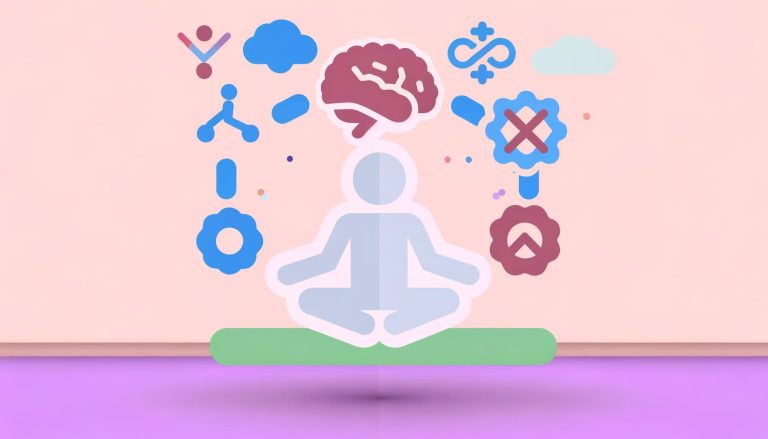Introduction:
Social anxiety can be a debilitating condition that affects countless individuals around the globe. Whether it’s meeting new people, attending social gatherings, or speaking in public, this anxiety can create significant barriers to enjoying everyday life. Fortunately, there are actionable strategies that can help individuals overcome social anxiety. In this comprehensive guide, we explore the nature of social anxiety and share practical steps to manage and reduce its impact.
Understanding Social Anxiety
Social anxiety disorder, also known as social phobia, is characterized by an intense fear of social situations and being judged or scrutinized by others. This condition can lead to avoidance behaviors and can severely interfere with daily activities and relationships. Recognizing the signs and symptoms of social anxiety is the first step toward overcoming it.
Common Symptoms of Social Anxiety
- Excessive fear of being judged or negatively evaluated by others
- Intense worry about social situations
- Avoidance of social interactions
- Physical symptoms such as sweating, trembling, or a racing heart
- Feelings of dread before social events
Strategies to Overcome Social Anxiety
1. Challenge Negative Thoughts
One of the most effective ways to combat social anxiety is by challenging negative thoughts. Cognitive-behavioral therapy (CBT) techniques can be especially helpful in identifying and restructuring irrational thoughts that fuel anxiety. Ask yourself:
- Is there evidence to support this thought?
- What would I tell a friend experiencing the same thoughts?
- Am I overestimating the likelihood of a negative outcome?
2. Gradual Exposure to Anxiety-Provoking Situations
Avoiding social situations can reinforce anxiety. Instead, try a gradual exposure approach, where you slowly face the feared situations at a comfortable pace. Start with a small, manageable challenge and gradually increase the level of difficulty. This desensitization process helps build confidence and reduces anxiety over time.
3. Develop Social Skills
Improving social skills can enhance your confidence in social situations. Join a social skills training group or practice basic skills like maintaining eye contact, active listening, and initiating conversations. These skills can make you feel more at ease and increase your comfort level in social settings.
4. Practice Mindfulness and Relaxation Techniques
Mindfulness meditation and relaxation exercises can be powerful tools in managing anxiety. Techniques like deep breathing, progressive muscle relaxation, and guided imagery can help calm the body and mind. Regular practice of these techniques can reduce the overall level of anxiety and improve your ability to handle stress.
5. Set Realistic Goals and Take Small Steps
Setting achievable goals and taking small steps toward those goals can make the process of overcoming social anxiety less overwhelming. Break down large tasks into smaller, manageable steps, and celebrate your progress along the way. This approach promotes a sense of accomplishment and motivates you to continue working towards your goals.
6. Seek Professional Help
If social anxiety severely impacts your daily life, seeking professional help might be necessary. Mental health professionals like psychologists and counselors can provide tailored strategies and therapies, such as CBT, to help you manage and overcome social anxiety. Support groups can also offer a sense of community and shared experiences.
Practical Tips for Social Situations
Here are some practical tips to help you navigate social situations more comfortably:
- Prepare in Advance: Think about potential conversation topics or questions you might like to ask. This preparation can reduce feelings of anxiety about having to come up with things to say on the spot.
- Focus on Others: Shift the focus away from yourself by showing genuine interest in others. Ask open-ended questions and listen actively to their responses.
- Use Positive Visualization: Visualize yourself successfully handling social interactions. Positive visualization can boost your confidence and ease anticipatory anxiety.
- Keep Practicing: Like any other skill, becoming comfortable in social situations requires practice. The more you practice, the more confident you will become.
Benefits of Overcoming Social Anxiety
Overcoming social anxiety can have profound benefits for your overall well-being. These include:
- Improved Self-Esteem: Successfully managing anxiety can lead to an increase in self-confidence and self-worth.
- Better Relationships: Reduced anxiety can lead to more meaningful connections with others, improving the quality of your personal and professional relationships.
- Enhanced Quality of Life: With less anxiety, you can engage in a wider range of activities and experiences, enriching your life and expanding your horizons.
Conclusion:
Overcoming social anxiety is a journey that requires patience, practice, and persistence. By implementing the strategies outlined in this article, you can gradually reduce your anxiety and foster a more fulfilling and socially engaging life. Remember, it’s essential to be kind to yourself and seek support when needed. With time and effort, you can conquer your social fears and enjoy the vibrant interactions that life offers.
Sources: WebMD, Mayo Clinic, ADAA


